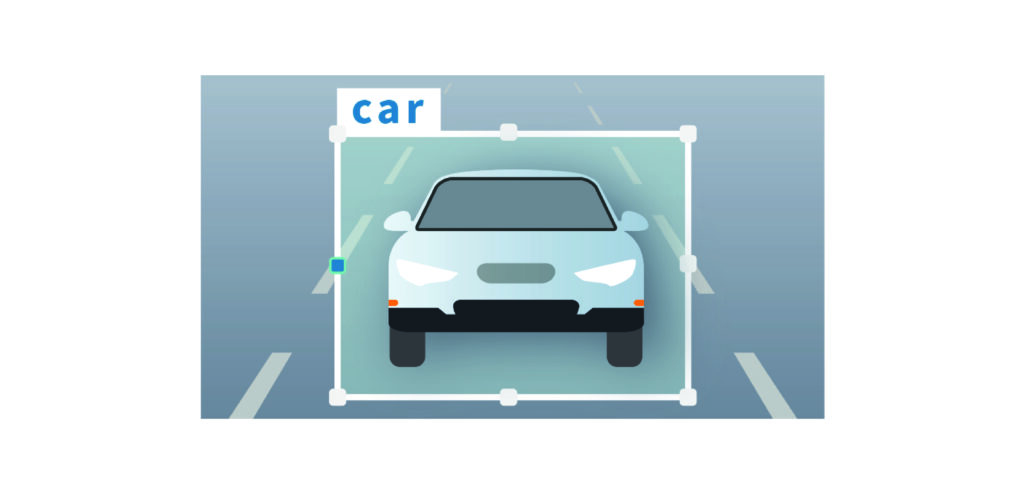To enable automated driving, a vehicle must be able to perceive its environment and process the data it collects. Machine-learning techniques are typically used for this purpose. The training of algorithms requires high-quality annotated data to ensure reliable functioning. Core challenges include the large volumes of data that are required and their unambiguous labeling so that data can be reused and shared, and results reproduced. Some organizations already offer open databases and make data sets available to the industry. However, they usually use their own taxonomies, formats and data models, making it difficult to share and reuse the data.
This presents several challenges. For example, the data sets of the different organizations can only be compared, used or shared to a limited extent. Furthermore, annotated data sets can only be reused to a limited extent, and maintenance and updating of the annotations are difficult. The result is lower-quality annotations.
The unambiguous labeling of data is therefore an essential prerequisite for shared use and thus for the safety of autonomous driving systems. However, it is often associated with enormous effort and considerable costs.
ASAM OpenLABEL is claimed to be the first standard to provide a solution to this. The standard specifies a data model and format for structuring and organizing information different types of sensor data (from cameras, lidar, radar, etc) into so-called ‘labels’. In addition, ASAM OpenLABEL defines a set of standardized ‘tags’ as well as a data model to categorize and organize scenarios.
To guarantee an unambiguous designation of labels, tags and other description elements, ASAM provides for the use of ontologies. Although the organization recommends the use of ASAM OpenXOntology (release of the standard in December 2021), ASAM OpenLABEL can also be used with other ontologies and taxonomies.
“ASAM OpenLABEL is the first-of-its-kind standard, and definitely not a conventional one. It is underpinned by an entirely novel approach to labeling that enables a much more efficient way to manage and maintain labels and their semantics through the use of ontologies. We are confident that OpenLABEL will significantly help the industry in iterating faster, sharing data more efficiently, and ultimately deploying safe ADAS and AV systems sooner,” explained Nicola Croce of Deepen AI, who was project leader of the standard development group.
OpenLABEL was developed by an international working group of experts from 22 ASAM member companies. They all contributed expertise to ensure that the new standard meets the requirements and expectations of the industry. Potential users of the standard include specialists in machine learning, perception and/or computer vision, data labeling, test processes, systems, validation and verification of ADAS and AV, functional safety and simulation.
“ASAM OpenLABEL is a new standard that standardizes multi-sensor data labeling as well as scenario labeling and facilitates interchangeability of data sets. The standardized format and data model, as well as the use of ontologies as a basis, will lead to a noticeable increase in the quality of annotated data sets, contributing to the safety of autonomous driving. As this is the first standard in the world to address annotation, we are confident that ASAM OpenLABEL will soon be a widely used and trusted standard in the industry,” concluded Peter Voss, MD at ASAM.


